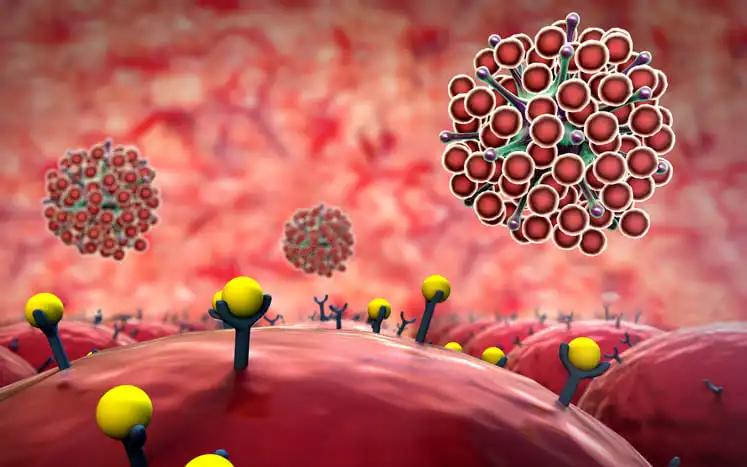KEY TAKEAWAYS
- The study aimed to conduct a bibliometric analysis to summarize the trends in research on resistance to EGFR TKIs in patients with EGFR-mutant NSCLC.
- The study identified hot spots in EGFR-TKI resistance in NSCLC therapeutics.
Activating mutations in epidermal growth factor receptor (EGFR) have been identified to be majorly predictive in personalized treatment with EGFR tyrosine kinase inhibitors (TKIs) in non-small cell lung cancer (NSCLC), aiding in improving patient response rates and survival.
However, resistance challenges the efficacy of these treatments, with a limited understanding of post-resistance therapeutics. A deeper understanding of the biology and resistance mechanisms of EGFR-mutant NSCLC is urgently needed for the development of novel treatment strategies.
Jun Shao and the team aimed to conduct a bibliometric analysis to summarize the trends in research on resistance to EGFR TKIs in EGFR-mutant NSCLC to understand the biology of resistance mechanisms and to identify potential novel treatment approaches post-resistance.
Researchers retrieved research papers based on EGFR inhibitor-resistant NSCLC from the Web of Science Core Collection (WoSCC). Bibliometric tools like CiteSpace, VOSviewer, and other platforms were employed for comprehensive analysis and visualization of the outcomes.
Data analysis revealed that the WoSCC database contained a total 5866 documents on resistance to EGFR TKIs treatment, comprising 4727 articles (93.48%) and 1139 reviews (6.52%). These documents originate from 81 countries and regions and involve 4792 institutions, with contributions from 23,594 authors.
Since 2016, there has been a notable increase in publications in this field, indicating growing research interest and activity globally. China leads in publication output, reflecting significant contributions to the literature on EGFR-TKI resistance, while the United States has garnered the highest citation count for papers, underscoring the impact of research originating from this region.
Among the top contributors to research in this area, Harvard University stands out with the highest number of publications. The top 10 journals publishing on EGFR-TKI resistance include Clinical Cancer Research, which boasts the highest impact factor at 11.5. Notably, 90% of these journals are classified in Q1 or Q2 categories, indicating their high academic standing.
Key subjects of research focused on genetic testing, understanding resistance mechanisms, and developing strategies for managing resistance once it occurs. Influential authors such as Rafael Rosell being the most influential authors in the area had significantly shaped this field, ranking high in both publication volume and citation count, pinpointing their impact on advancing knowledge in EGFR-TKI resistance.
The study provided a firm basis for identifying hot spots in EGFR-TKI resistance research in NSCLC, offering reliable guidance in finding authoritative references, understanding research trends, and exploring potential directions.
The study was supported by the National Natural Science Foundation of China (No.82272669, No.82203010).
Source: https://pubmed.ncbi.nlm.nih.gov/38947223/
Shao J., Gu Y., Guo R., et al. (2024). “A Visual Analysis of the Research Dynamics in Resistance to EGFR Inhibitors for NSCLC.” Drug Des Devel Ther. 2024 Jun 26;18:2571-2591. doi: 10.2147/DDDT.S465238. PMID: 38947223; PMCID: PMC11214774.



